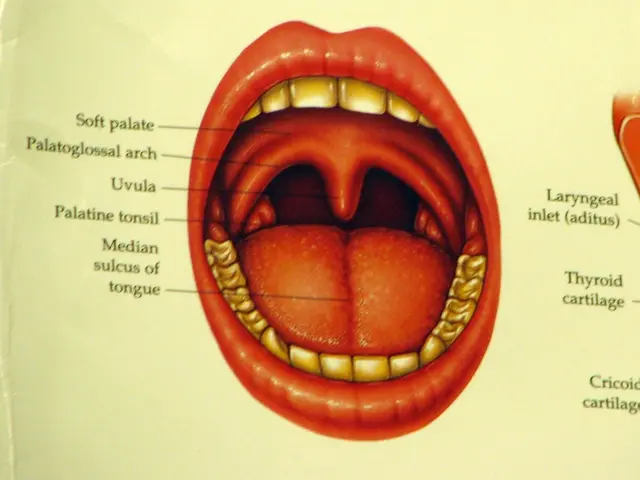Activating Shingles: Identifying Causes and Potential Triggers
Shingles, also known as herpes zoster, is a viral infection that can affect individuals who have previously had chickenpox. This condition is characterised by a painful rash that typically appears on one side of the body or in a band around a person's torso, but can also occur on the face [1][3][4].
The varicella-zoster virus (VZV), which causes both chickenpox and shingles, remains dormant in the body after chickenpox has cleared. However, it can reactivate when the immune system is weakened, which is why certain factors increase the risk of shingles [1][3][5].
Those with a weakened immune system, such as those living with HIV, receiving treatment for cancer, living with certain cancers like leukemia, or taking immunosuppressants, are at a higher risk of developing shingles. Additionally, advancing age, especially over 50, increases the susceptibility to shingles. Stress, both emotional and physical, can also impair immune function, triggering shingles [1][3][5].
Chronic health conditions like diabetes, autoimmune disorders, heart disease, and kidney disease contribute to increased risk by straining the immune system. Other factors such as being bedridden, exposure to chickenpox virus, and environmental influences like pollution or rising temperatures may also play a role [2][5].
In the United States, about one in three individuals will develop shingles at some point [6]. Fortunately, treatments for shingles are available. Antiviral medications like valacyclovir, acyclovir, and famciclovir should be started as soon as possible following a shingles diagnosis to help reduce the risk of postherpetic neuralgia (PHN), a complication that causes lingering pain where the rash appeared [2].
The CDC advises that the vaccination is 90% effective in preventing shingles and PHN. The recombinant zoster vaccine (Shingrix) is the best prevention for shingles, and the Centers for Disease Control and Prevention (CDC) recommends that everyone over the age of 50 and those over the age of 19 with a weakened immune system receive 2 doses [6].
It's important to note that people with shingles can pass VZV to anyone who has not had a chickenpox vaccination or previously had the virus. Therefore, they should avoid contact with anyone who may be at risk of developing chickenpox or shingles [2].
If you suspect you have chickenpox or shingles, it's crucial to contact a doctor right away. A healthcare professional can diagnose the condition and provide treatment to help you recover faster and avoid potential complications [7].
In conclusion, understanding the causes and risk factors of shingles can help individuals take preventative measures to protect themselves. If you are over 50, or have a weakened immune system, it's recommended to get the shingles vaccination to reduce the risk of developing this painful condition [1][3][6].
References:
[1] Centers for Disease Control and Prevention. (2021). Shingles. Retrieved from https://www.cdc.gov/shingles/about/index.html
[2] Mayo Clinic. (2021). Shingles (herpes zoster). Retrieved from https://www.mayoclinic.org/diseases-conditions/shingles/symptoms-causes/syc-20355668
[3] National Health Service (NHS). (2021). Shingles. Retrieved from https://www.nhs.uk/conditions/shingles/
[4] World Health Organization. (2021). Shingles. Retrieved from https://www.who.int/news-room/fact-sheets/detail/herpes-zoster-(shingles)
[5] American Academy of Dermatology. (2021). Shingles. Retrieved from https://www.aad.org/public/diseases/contagious-skin-diseases/shingles
[6] Centers for Disease Control and Prevention. (2021). Shingles Vaccination. Retrieved from https://www.cdc.gov/shingles/about/prevention/vaccination.html
[7] American Academy of Family Physicians. (2021). Shingles. Retrieved from https://familydoctor.org/condition/shingles/
[8] U.S. Food and Drug Administration. (2021). Shingrix. Retrieved from https://www.fda.gov/vaccines-blood-biologics/vaccines/shingrix
- The varicella-zoster virus, which causes both chickenpox and shingles, can reactivate decades after a person has recovered from chickenpox, potentially resulting in shingles.
- Certain medical conditions, such as diabetes, autoimmune disorders, heart disease, kidney disease, and neurological disorders, can increase the risk of developing shingles due to the strain they put on the immune system.
- CBD, a compound found in cannabis plants, has been introduced as a potential treatment for chronic diseases and medical-conditions, including several neurological disorders, but more research is needed to understand its effectiveness in treating shingles.
- In addition to getting the shingles vaccination, practicing good health-and-wellness habits, like eating a balanced diet, exercising regularly, managing stress levels, and avoiding close contact with those who have chickenpox or shingles, can help reduce the risk of developing shingles.




